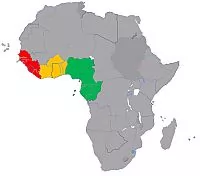Aero Contractors has laid off 60% of its employees as part of measures to cut costs, four months after it suspended operations due to operational difficulties.
Main Findings
- The Asset Management Company of Nigeria (AMCON), a state-own debt management firm, took over Aero in February 2016 for insolvency, and the airline eventually suspended flights in September saying the impact of the country's economic downturn had been 'very harsh' on its operational performance. The airline then directed its employees to take indefinite leave while it negotiated a downsizing with aviation staff unions.
- Aero resumed flights in December, but in March 2017 it sent a notice of redundancy to affected workers on the grounds that it did not have enough resources to maintain their employment. "The current situation where over 1,000 people are basically not engaged due to lack of serviceable aircraft is not sustainable for the airline," the notice read. The airline assured the affected staff of their full gratuities and a chance to be recalled when the firm's circumstances improve, but staff unions fear the workers might be laid off without receiving their full entitlements.
- Nigeria's economy suffered a recession in 2016 and the aviation sector was severely affected. Airlines struggled due to the rising cost of aviation fuel and depreciation of the naira occasioned by dollar shortages, which made it more expensive to maintain their fleet. Three airlines (Aero, Arik and First Nation) suspended flights at some point that year and the leading airline Arik was taken over by AMCON for insolvency in February 2017.
Outlook
The Muhammadu Buhari government recently launched an economic recovery plan that will see it pursue 2% GDP growth this year. There has been a steady inflow of petrodollars since late 2016 due to a ceasefire in the Niger Delta, and this has enabled the government intensify efforts to support the economy (e.g. expanding its N-Power jobs program).
The aviation sector would benefit from an economic recovery, but operational/regulatory problems (e.g. multiple taxation and fuel shortages) might also persist, alongside the risk of industrial unrest affecting airlines like Aero who are struggling to pay staff.
The content of this article is intended to provide a general guide to the subject matter. Specialist advice should be sought about your specific circumstances.

